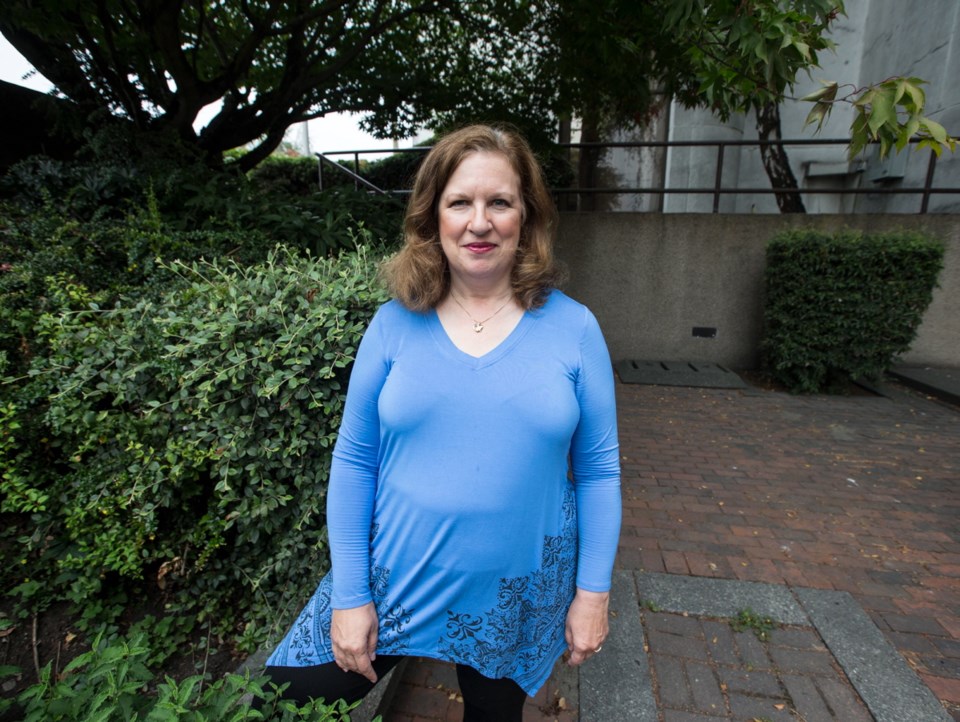Victoria’s Nancy Curry knows first-hand the benefits of theatre classes for young people on the autism spectrum. As a youngster, her daughter Kim loved participating in theatre.
However, the girl — diagnosed with Asperger’s syndrome — had difficulty interpreting her fellow actors’ facial expressions and other gestures.
“She once said to me, ‘When my roommates go ooh [a sigh] or urgh [an expression of frustration], I can’t tell the difference. It’s just a sound,’ ” Curry said.
Starting Monday, Curry — an educator, vocal coach and pianist — will teach a new course at Kaleidoscope Theatre. Titled The Story Wheel, it’s for young people on the autism spectrum. There are two classes, one for children ages nine to 12 and another for those 13 and up.
Aside from offering theatre-related skills, the classes will help participants recognize, interpret and respond to different human behaviours. While it’s intuitive for most, those on the spectrum can find that challenging.
One unusual thing about The Story Wheel is that it’s based on Canadian literary critic Northrop Frye’s theory of archetypes. Class participants will play heroes, villains, sidekicks and mentors from folk tales, classic literature and pop culture.
Curry says the story of Cinderella is an example of a theatre exercise. Students working on an adaptation would discuss the pros and cons of Cinderella accepting her fairy godmother’s invitation to a ball, a behaviour that would be personally gratifying but annoy her stepsisters.
“[Students] are still in the roles, but they’re thinking about questions of ethics, questions about consequences, “ Curry said.
A professional vocal coach and pianist for such companies as the Edmonton Opera and the San Diego Opera, Curry has become something of an expert in the field of educational theatre and autism.
She’s now completing PhD studies at the University of Victoria in applied theatre and special education, with a focus on the impact drama education can have on the development of social skills for those with autism spectrum disorder.
Previously, she spent 16 years teaching theatre summer camps at the University of Northern Colorado, where some participants were on the autism spectrum.
One boy with Asperger’s, returning to the camp season after season, began to show improvements. Like some with the syndrome, the boy had at first been fretful in his need to follow rules exactly.
One day, Curry was pleased to see the boy show new signs of empathy and flexibility. In one exercise, students were asked to make forest sounds. The boy, who was making leaf-crunching noises, noticed a classmate had become upset because he had no role.
“The boy said, ‘OK, you can crunch leaves under your feet and I’ll be an owl, ‘Woo woo!’ ” Curry said, smiling at the memory.
According to Frye’s 1957 book Anatomy of Criticism, which has influenced Curry’s approach, all stories can be divided into archetypes. These include comedy, tragedy, romance and irony/satire. Such archetypes can be further divided into sub-categories, such as different varieties of heroes, for example.
In her teaching, Curry discovered those on the autism spectrum found Frye’s way of analyzing behaviour helpful. Those with the disorder often favour systems as a way of figuring out the word. For instance, Curry says autistic pre-schoolers — confronted with a confusing world — might organize their toys into categories of colour and size.
“The Story Wheel is a system that actually explains human behaviour through story,” she said.
Curry first learned how Northrop Frye’s theories can be applied to theatre 20 years ago. The approach was being taught by director Keith Turnbull at the Banff Centre for Arts and Creativity.
Another advantage of learning about human behaviour through theatre is that it’s not overtly didactic, Curry said. People on the autism spectrum dislike being told point-blank that they must behave in a “normal” way.
“We’re doing this from the emotional distance of fiction, rather than saying: ‘We’re going to fix you — we’re going to teach you how to behave like a regular person,’ ” Curry said.
“This approach is not focused so much on performance and acting training as developing social thinking.”
There are other theatre classes for those on the autism spectrum in cities such as Edmonton, Ottawa and Montreal. However, Curry believes hers will be the only one in saπ˙º ¥´√Ω using Frye‚Äôs theories as a springboard.
Curry’s daughter is now a young woman who is become a promising writer. Speaking about social challenges faced by those on the spectrum, Kim once said she was “deaf to body language.”
Curry also recalled the words of Temple Grandin, the celebrated autistic author and lecturer. “She said [on being autistic], ‘Most of the time I just feel like an anthropologist on Mars.’ ”
